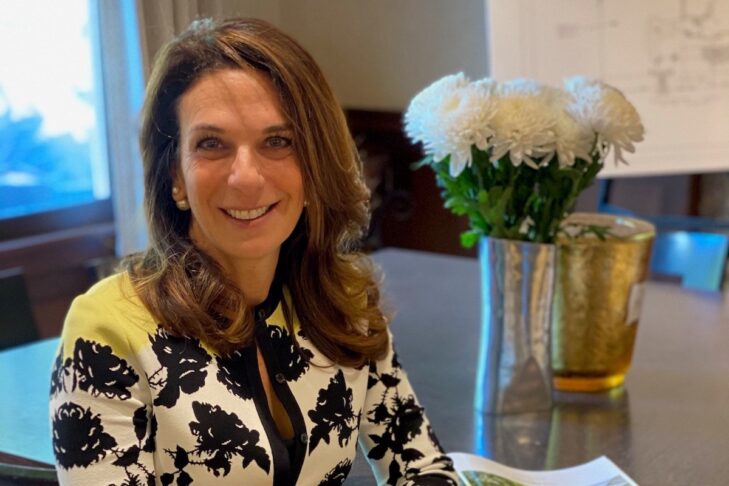When Jamie Grossman stepped down as president of the Board of Directors of JF&CS, we had planned to honor her at our spring gala. Instead, we held a virtual celebration at our Annual Meeting, announcing that we were naming the board room—where she has spent countless hours working tirelessly on behalf of JF&CS—after her. Recently, we asked Jamie to reflect on her work with JF&CS, about leading during crisis and the importance of legacy giving.
You have been involved with JF&CS for years; for 20 years here in Boston and through your mother’s work in Philadelphia years ago. In your mind, what has remained constant about JF&CS, its work and its impact?
Two things really stand out. First, the complete devotion of board, staff and volunteers to meeting the needs of our community—it’s just extraordinary. Second, that commitment has such longevity. If you did a poll of how long staff has been there, it’s really incredible. Board members also stay around once they are engaged.
Once I got a feel for the organization, I became more involved as a volunteer and saw firsthand the value and impact of the work. I remember a Schechter Holocaust Services event where a client spoke about how isolated she was, how challenging it was to decide between paying for heat and purchasing food. I learned that her story was not unique, that 30% of Holocaust survivors live below the poverty level and have to make choices like that every month. To know that as a JF&CS volunteer and donor, I could help over 400 Holocaust survivors connect to resources that reliably meet their basic needs, to have the opportunity to make such a difference in someone else’s life, that’s a pretty compelling reason to stick around!
You clearly had a strong role model in your mom and are an equally powerful role model for your own girls. Is there something about JF&CS that makes it a great place for families to learn about the power of giving back?
When I was younger, it was not like it is today, with everyone running their kids around to volunteer everywhere. My mom went out two nights a week to tutor girls in a residential home, and sometimes she’d bring them home for Shabbat dinner. Seeing my mom in that role was my original exposure to volunteerism and the impact we could have on each other’s lives. Once I had my own daughters, our family volunteered with JF&CS as much as we could, distributing food at Family Table, helping with Shabbat dinners for adults with disabilities and more.
What was your proudest achievement as board president?
Over the years, JF&CS has become family, and as board president, you want to care for your family. Being board president during a leadership transition was one of the hardest things I have ever done. I was fortunate to work closely with smart, passionate board and staff members to ensure a smooth transition. The community could see that we were working together as a team to transition the leadership of the organization for whatever’s next, and that coming together was so empowering.
Why does planned giving matter to JF&CS? What’s the power of including the agency in one’s estate?
For me and my family, legacy giving is an investment in the enduring work and sustained impact of the agency. JF&CS has been here for people in need for over 150 years. We want to make sure it’s here for decades to come. Making a planned gift to JF&CS was probably one of the easiest decisions to make and also to execute. Knowing that my impact will touch generations to come is so gratifying.
Learn more about creating a legacy with JF&CS and joining our Tree of Life Society.
This post has been contributed by a third party. The opinions, facts and any media content are presented solely by the author, and JewishBoston assumes no responsibility for them. Want to add your voice to the conversation? Publish your own post here. MORE


